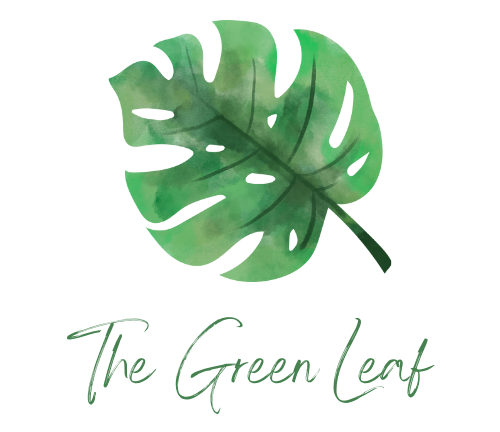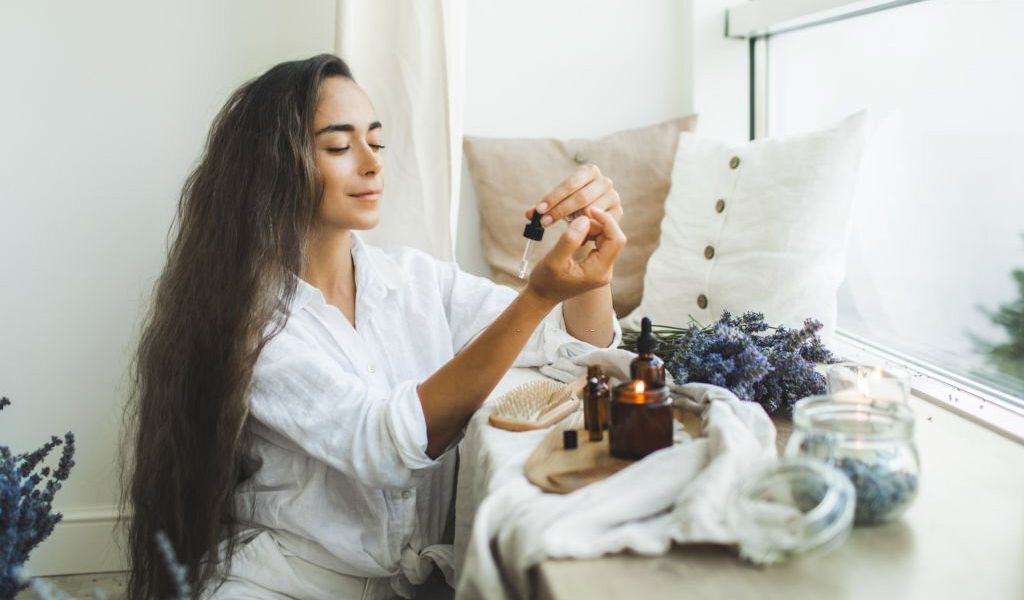Our skin will continuously change as we age. In fact, our skin regenerates approximately every 27 days. While skin aging is natural, there are still ways we can follow to make sure our skin is healthy and at its best, even as we grow old.
Herbs are popular options when it comes to maintaining a healthy skin. Many skincare products and supplements contain medicinal herbs that aid skin rejuvenation and promote overall skin health. Including herbs in our diet, either as a cooking ingredient, topical solutions, face wash, or mask, can benefit our skin.
According to surveys, over 58% of American women prefer natural or organic skincare products. Many individuals prefer herbs because all-natural is often better than synthetic or artificial chemicals, which can be harmful or toxic to the skin. Plus, herbal skincare is an eco-friendly option.
So, if you’re looking for the top herbs perfect for skin regeneration, we list them below. We also provided the details that help explain how and why they work best. Finally, we’ll show you how to use these potent herbs.
Factors That Affect Skin Regeneration
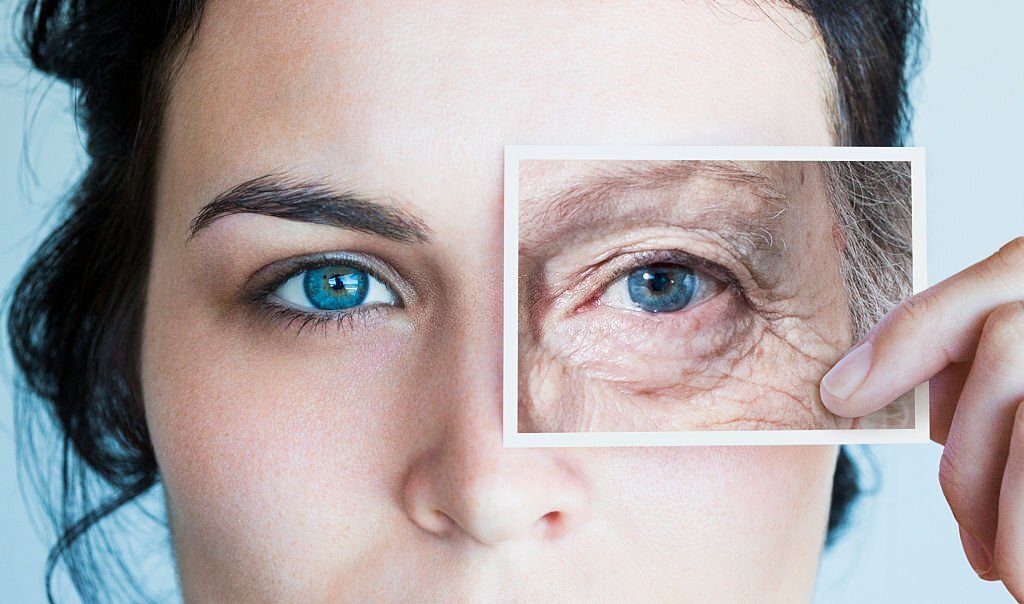

Skin regeneration is the process of constant renewal of skin cells. It occurs when our old, dead skin cells on the skin’s surface are replaced by younger new cells. It helps renew, restore and repair our skin. While skin regeneration is a natural process, some factors can affect it.
1. Age
Your skin naturally changes as you age. These changes are due to the decrease of collagens and elastin, proteins responsible for giving our skin its youthful and glowing look. Studies show that we experience a gradual reduction in collagen production when we reach about 34 years old. It will continue to reduce by 25% over the next 40 years.
As skin aging happens, the impacts on our skin usually include dryness, wrinkles, loss of elasticity, laxity, and many others.
2. Lifestyle
Lifestyle habits have a significant impact on our skin. Drinking lots of water, maintaining a nutritious diet, getting enough sleep, and regular exercise are good daily habits to help your skin. These routines promote enough fats, fluid, and nutrition to keep the production of collagen, elastin, and other nutrients beneficial to your skin’s overall health.
Meanwhile, excessive alcohol, cigarette smoking, stress, and a sedentary lifestyle can negatively affect your skin cells. Chemicals in cigarettes and alcohol damage your skin cells and lower collagen and elastin levels. Hormone changes caused by stress and a sedentary lifestyle alter your skin’s pH, or the level of acidity or alkalinity, leaving your skin looking dull and dehydrated.
3. Genetics
Genes also contribute to our skin type, whether we have dry, normal, or oily skin. Even skin conditions such as acne or eczema have a genetic predisposition and may be hereditary. Studies show that 60% of changes in skin aging are attributed to genetic factors.
4. Environment
The environment we live in could also affect our skin’s health. Pollution, toxic chemicals, dust, too much sun exposure, and microbes can clog up our pores, causing irritation and skin aging issues. It also leads to age spots, which are dark pigmentation on the skin.
5. Hormonal Changes
Estrogen is one of the primary hormones responsible for giving your skin its youthful glow. It produces hyaluronic acid, which provides the skin with enough moisture and reduces fine lines and wrinkles. Changes in estrogen levels can cause skin dryness in women during pregnancy, menopause, and other conditions.
How Can Herbs Help Skin Regeneration?
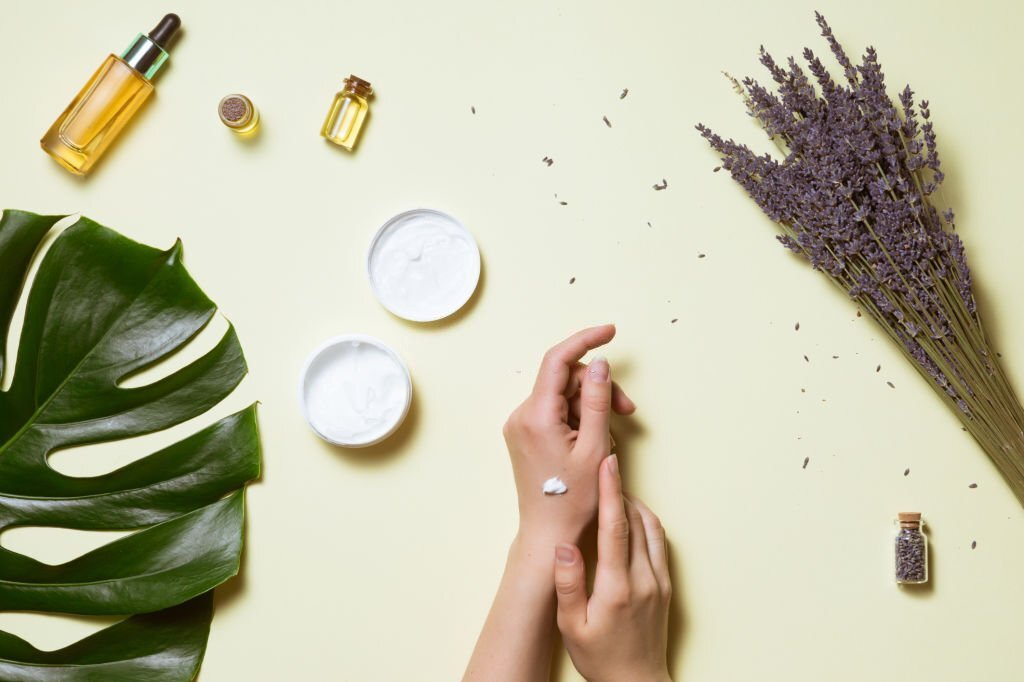

Herbs have traditionally been used to heal and treat skin conditions. They are also equally beneficial for keeping your skin healthy and youthful. Many herbs can help you slow down skin aging and protect your skin cells against damage.
Many herbs contain antibacterial properties that could repair skin tissues and clear up acne. They are also rich in antioxidants like polyphenols and phytochemicals, potent compounds that nourish skin cells at a molecular level.
Some herbs stimulate fibroblasts to enhance collagen production, while others focus on keeping your skin nourished and moisturized. Herbs also contain nutrients and vitamins that improve the balance of our skin’s pH level, which is essential to our skin’s protective barrier.
There are more reasons why herbal therapy is great for your skin. We explained them in detail below.
The 10 Best Herbs For Skin Regeneration
Here’s the list of the 10 best herbs for your skin regeneration we recommend you to use. These herbs can make your skin look great and youthful.
- Lavender
- Chamomile
- Echinacea
- Rosemary
- Sweet Clover
- Thyme
- Comfrey
- Aloe vera
- Neem
- Cinnamon
1. Lavender
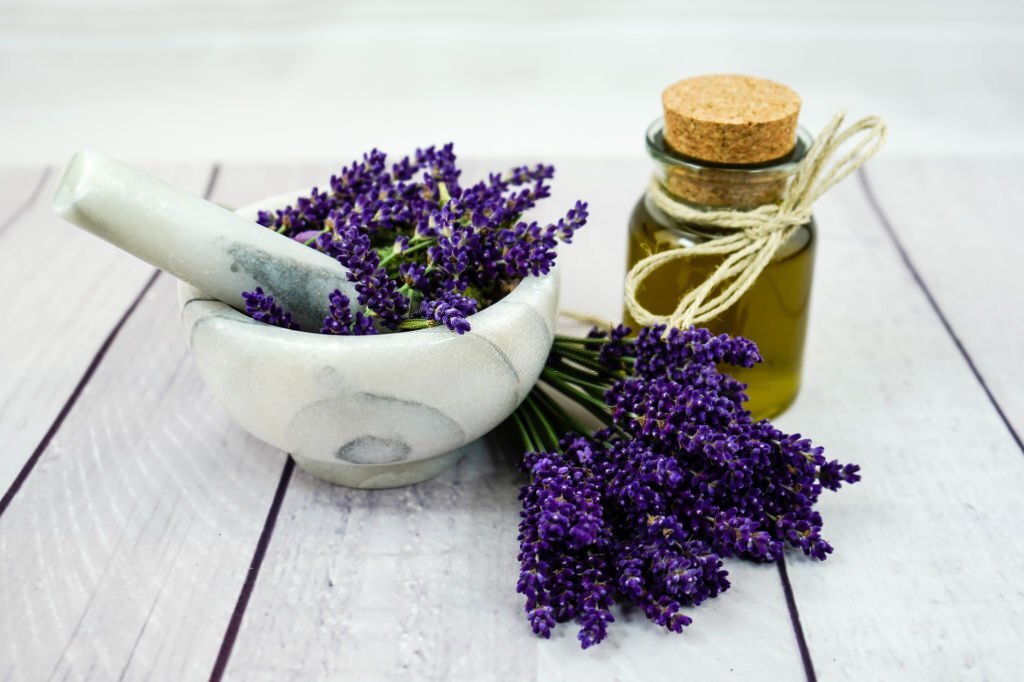

Lavender offers one of the best herbal oils for your skin. It contains potent antioxidants such as linalyl acetate and linalool, protecting your skin from damage caused by free radicals and oxidative stress. This aromatic herb has antiseptic and anti-inflammatory properties that heal and restore your skin against minor burns and bug bites.
Lavender oil also increases the production of collagen in the body. It stimulates fibroblasts, a cell type present in connective skin tissue that secretes collagen. This makes lavender oil effective against wrinkles, fine lines, and skin aging. It also tightens the skin to avoid sagging.1
You can use lavender as an oil massage by adding a few drops to a carrier oil like jojoba oil. Add a few drops of it to body lotion, and you can easily apply it to the rest of your body. You can also add it to a diffuser or steamer for steam therapy or aromatherapy.
2. Chamomile
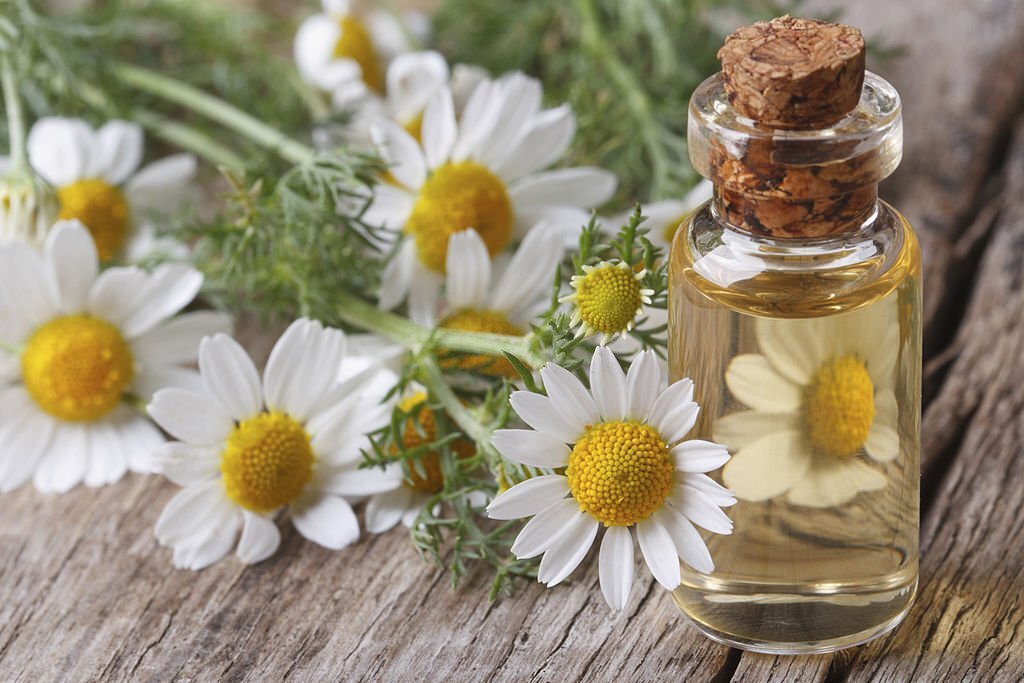

Chamomile contains potent antioxidants such as polyphenols and phytochemicals that fight oxidative stress and free radicals. These antioxidants aid skin regeneration by promoting cell and tissue renewal, leading to glowing and healthy skin.
It also has collagen-boosting properties that keep your skin’s moisture and elasticity. Chamomile oil can also lessen your skin’s hyperpigmentation, age spots, redness, and acne.
Like any essential oil, you can use chamomile as an oil massage or body lotion with a carrier oil. Add a few drops of chamomile oil to your warm bath water to relax and nourish your skin.
Another way to use an essential oil like chamomile is to use it as a face mist. Here’s how:
- Simply add a few drops of chamomile oil into a bottle filled with water.
- Spray it on your face twice daily to freshen your skin.
3. Echinacea
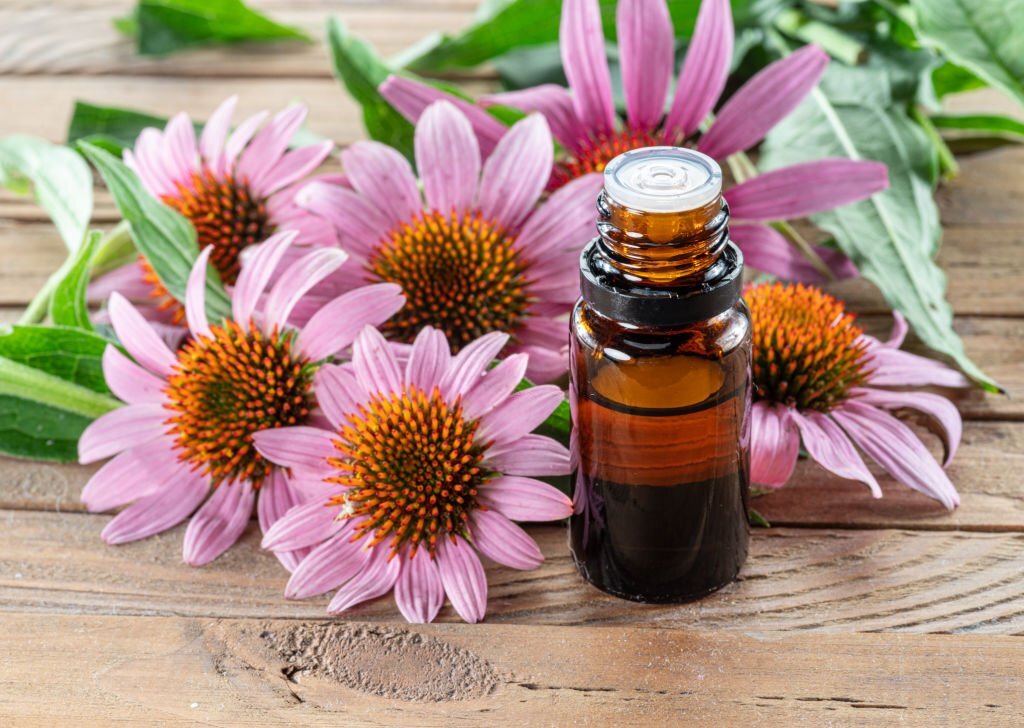

Echinacea has properties that moisturize and hydrate your skin. It increases epidermal lipids, ceramides, and cholesterol, resulting in smoother skin, a better protective barrier, and improved elasticity. Studies even show that echinacea reduces wrinkles by as much as 14.92%2
Echinacea also has antimicrobial and anti-inflammatory properties, which are good against acne and skin irritation.
There are many echinacea creams and gels available. It’s also being promoted as teas and supplements in pill form. Echinacea oil can be applied topically with a carrier oil or used in aromatherapy like any other essential oil.
4. Rosemary


Studies show that rosemary is excellent for age-related skin damage such as dry and loose skin. Rosemary is rich in vitamins C, A, and B6, which inhibit skin lipid peroxidation or the process by which free radicals attack and kill skin cells. It also helps balance high levels of the stress hormone cortisol. Thus, rosemary is an effective skin revitalizer, improving skin hydration and elasticity.
You can use rosemary as a warm wash. To do it, here’s how:
- Boil a small pot of water with fresh rosemary for a few minutes or until its scent fills the room.
- Set aside until it’s lukewarm.
- Start washing your wash with the rosemary water.
- Don’t dry your face with a towel when you’re done. Instead, let it air dry.
5. Yellow Sweet Clover
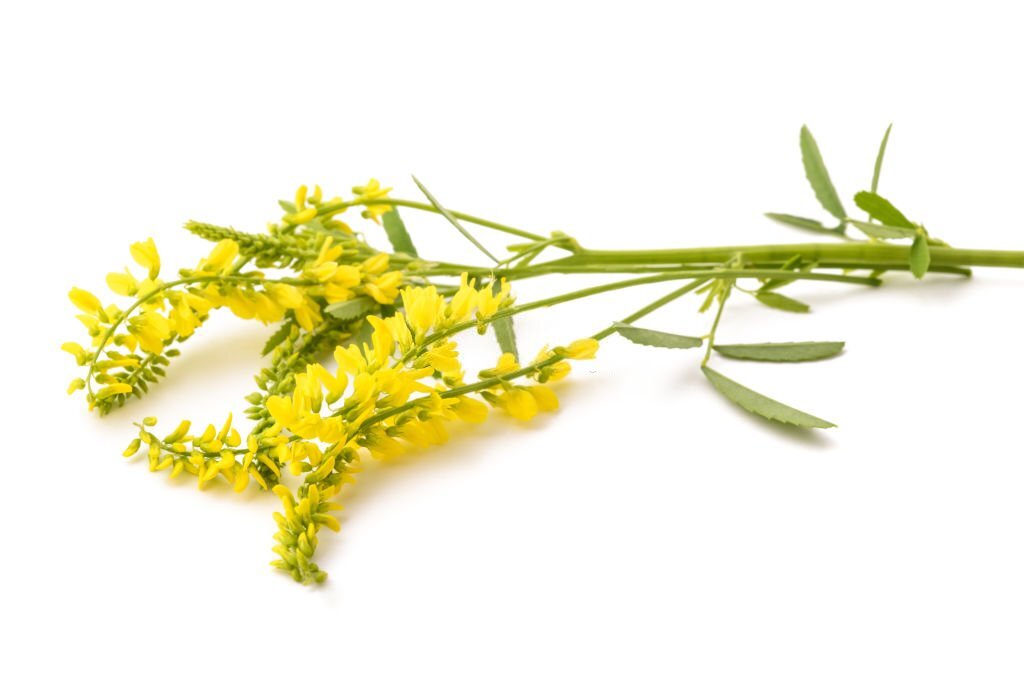

Yellow sweet clover can help improve your skin’s texture, moisture, and overall condition. It improves uneven skin tone and reduces skin roughness and blemishes, leaving it smooth and youthful-looking.
This herb contains isoflavones, a phytoestrogen that mimics the function of the hormone estrogen. Phytoestrogen controls sebum production, lessening skin inflammation and blemishes. Yellow sweet Clover also has prebiotics that help balance the skin’s pH, or the acidity and alkalinity level, improving its barrier function.3
Many herbs containing phytoestrogen offer a wide range of health benefits, including balancing your hormones beneficial to menopausal women and those suffering from hormonal imbalance.
Read More: Herbs For Hormone Balance
Sweet clover is usually used as a salve to help reduce bumps and smoothen skin. To make a sweet clove salve, here’s how:
- Slowly warm 1 oz. Beeswax on low fire.
- Add 4 oz. of sweet clover and stir until well-mixed.
- Remove from heat and let cool before using.
6. Thyme
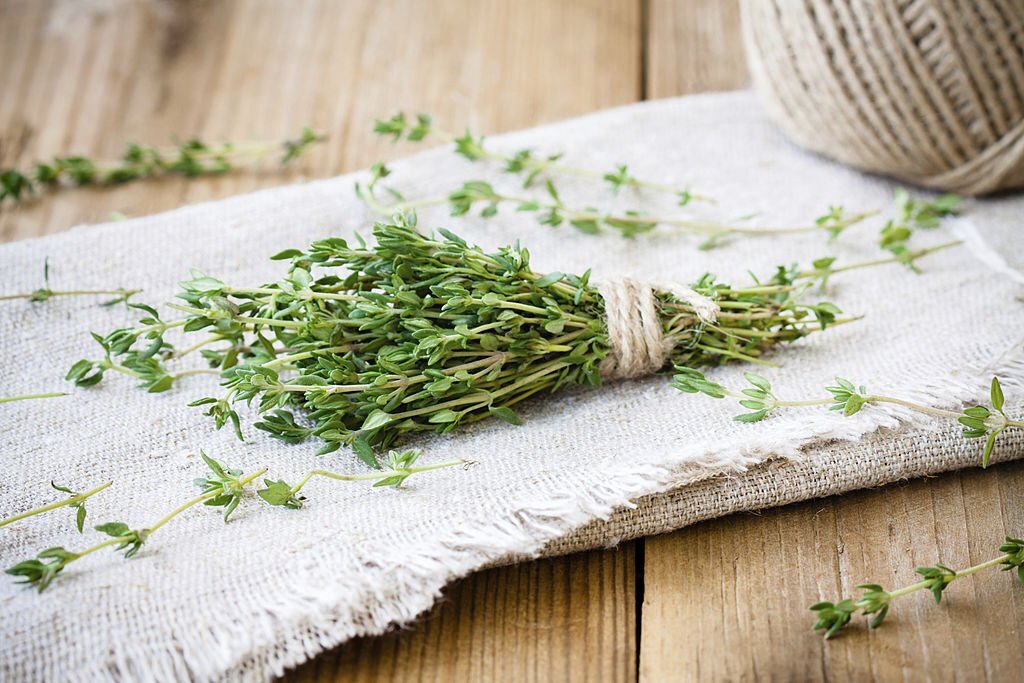

Thyme works great for oily skin, large pores, and acne. This potent herb contains high levels of the compound thymol, which is effective in sebum control and has antimicrobial properties. It heals your skin from acne and protects it against further acne flare-ups. 4
Thyme is also known to stimulate better blood flow circulation to the skin. This results in faster healing of scar tissues caused by acne and other skin damage.
You can use thyme oil like any essential oil. However, you can also try using it as a facial mask, perfect for clearing acne. There are many variations, but you can try using this simple banana-thyme face mask. To do it, here’s how:
- Combine 1 banana with 3 tablespoons of chopped fresh thyme and honey.
- Spread the mixture on your face.
- Let sit for 15 minutes and rinse with lukewarm water.
7. Comfrey
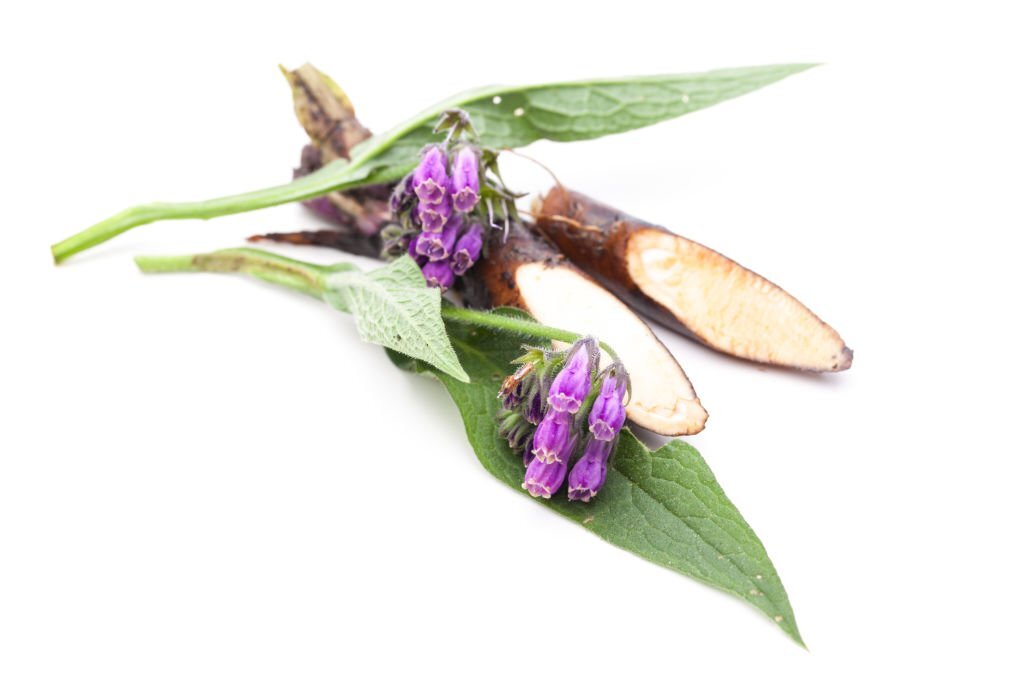

Comfrey is considered an essential anti-aging ingredient in most skin products. It contains potent compounds allantoin and rosmarinic acid, which can soften your skin and minimize wrinkles and fine lines. Allantoin stimulates faster skin cell regeneration, while rosmarinic acid reduces inflammation that usually causes acne and other skin conditions.
Studies show that using comfrey cream can hasten the regeneration of skin cells within 4–7 days in individuals with skin abrasions.5
To make a comfrey cream, here’s how:
- Melt beeswax in a double boiler and add comfrey oil.
- Stir well until it reaches the right thick consistency.
- You can add vitamin E or drops of essential oil.
- Remove from heat and let cool before using.
8. Aloe vera


Aloe vera gel contains 80% water and is loaded with vitamins, nutrients, and minerals that make your skin soft and radiant. It’s rich in vitamins A, C, and E, which are antioxidants that fight free radicals that destroy skin cells. This popular herb also increases collagen and elastin production by stimulating fibroblast, leading to less wrinkled and more elastic skin.6
Aloe vera is effective against many skin conditions, such as acne, skin aging, and eczema.
Read More: Best Herbs For Eczema
To use aloe vera, here’s how:
- Cut open and squeeze the gel.
- You can safely apply the aloe vera directly to the skin.
- To get the best benefits, use aloe vera gel daily.
There are also many aloe vera products available in the market. Just make sure to use the all-natural options.
9. Neem
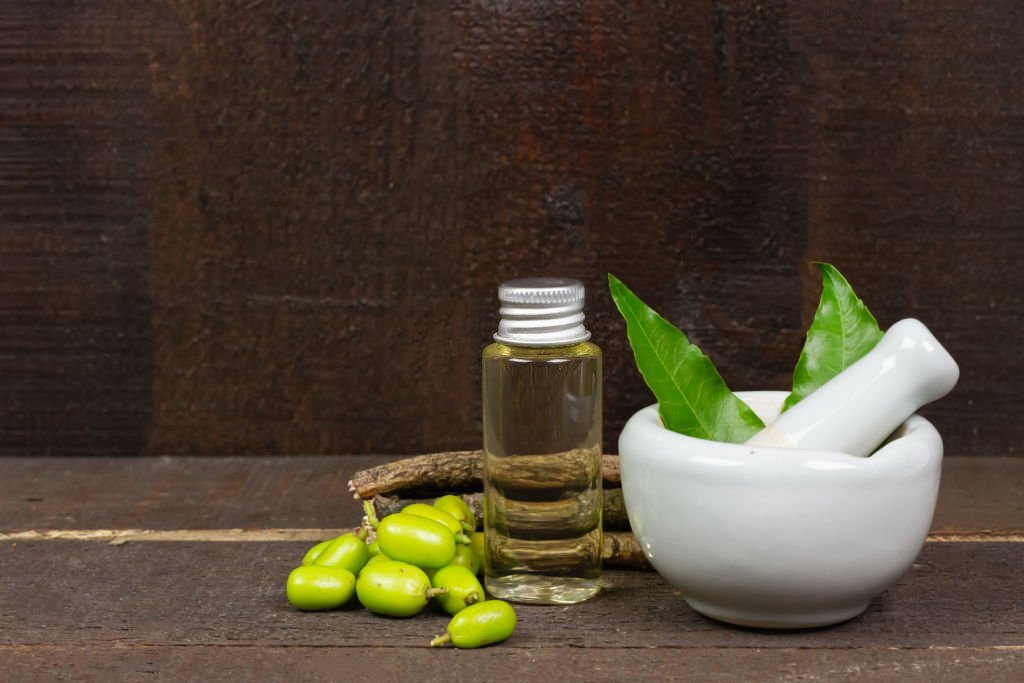

Neem leaves are rich in antioxidants, fatty acids, and vitamin E, making them an excellent anti-aging treatment. Vitamin E works as an anti-inflammatory agent that reduces skin swelling and rough skin patches caused by dead skin cells. It’s effective against skin damage caused by too much sun exposure and skin aging.
Neem oil has a lot of fatty acids like palmitic, linoleic, and oleic acids, which help keep the skin healthy and smoothen rough, bumpy skin.
The best way to use neem is to make a natural skin toner. Here’s how:
- Boil some neem leaves in a half-liter of water until the water turns green.
- Let cool, then strain into a bottle.
- You can use it everyday as a skin toner by putting it on your face and neck with a cotton swab.
10. Cinnamon


Cinnamon is loaded with antibacterial, anti-inflammatory, and skin-lightening properties. This medicinal herb contains linalool, cinnamaldehyde, and eugenol, potent antioxidant compounds that could lighten your skin, fade away acne scars and blemishes, and clear dark spots.7
Cinnamon also boosts your collagen levels to reduce signs of skin sagging and wrinkles.
One of the best ways to use cinnamon is to use it as a face mask at home. Here’s how:
- Mix honey and cinnamon until you make a thick paste.
- Apply it to your face and sit for 10 minutes.
- Washing it with lukewarm water.
Other Home Remedies For Skin Regeneration
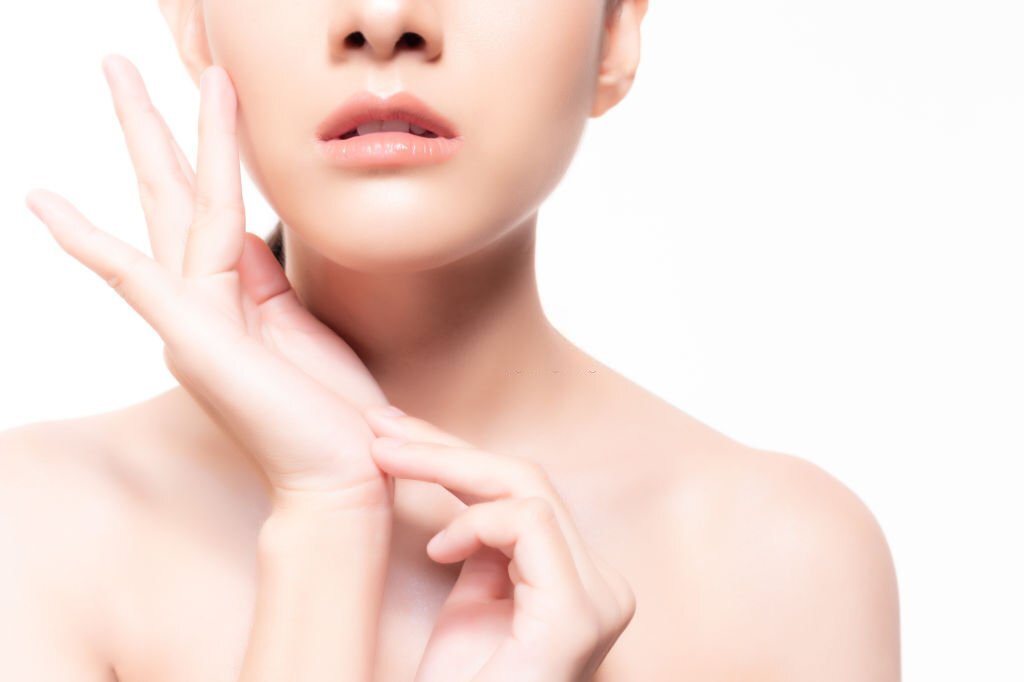

Here are some simple home remedies and tips to keep in mind to help your skin look healthy and glowing.
1. Stay Hydrated & Moisturized
Natural moisturizers such as honey, jojoba oil, coconut oil, avocado oil, and many others work well in combination with the herbs we listed above. They keep our skin healthy and refreshed even as we age.
Drinking water is one of the easiest ways to keep your skin hydrated and moisturized. Consuming enough water everyday maintains your skin’s elasticity and reduces your risk for acne, wrinkles, and bumpy skin.
2. Wear Sunscreen
Wearing sunscreen with an SPF of 15 or above can protect your skin against harmful UV rays, slowing down photoaging or the process of skin aging. Sunscreens can even treat acne and reduce uneven skin tone, redness, and inflammation.
3. Cleanse daily
According to the American Academy of Dermatology (AAD), we should wash our faces twice daily, especially after sweating. They explained that perspiration clogs pores making way for acne, skin irritations, and infections.8
4. Be gentle with your skin
The ADD further recommended the use of gentle, non-alcohol-based skin products. It’s also best to avoid an abrasive cleanser and use a washcloth or mesh sponge when washing our skin.
In Short
There you go! I hope you find this list of the best herbs for skin regeneration useful!
Herbs are a great addition to your skincare routine as they provide a natural and gentle solution against skin aging.
Herbs contain powerful antioxidant agents that can help soothe and smoothen your skin. They also have collagen-boosting properties that keep your skin’s elasticity and hydration.
Nutrients like vitamin A, C, and E found in herbs also make your skin cells nourished and healthy.
So the next time you want to flaunt youthful and glowing skin, give these herbs a try as soon as you can!
Reference:
